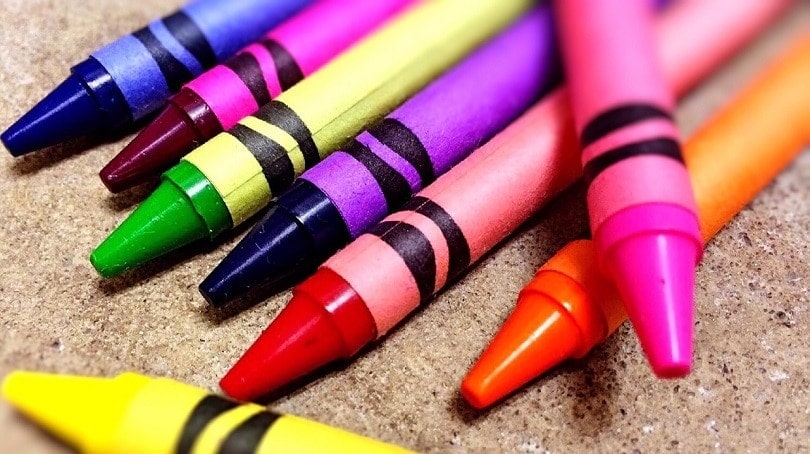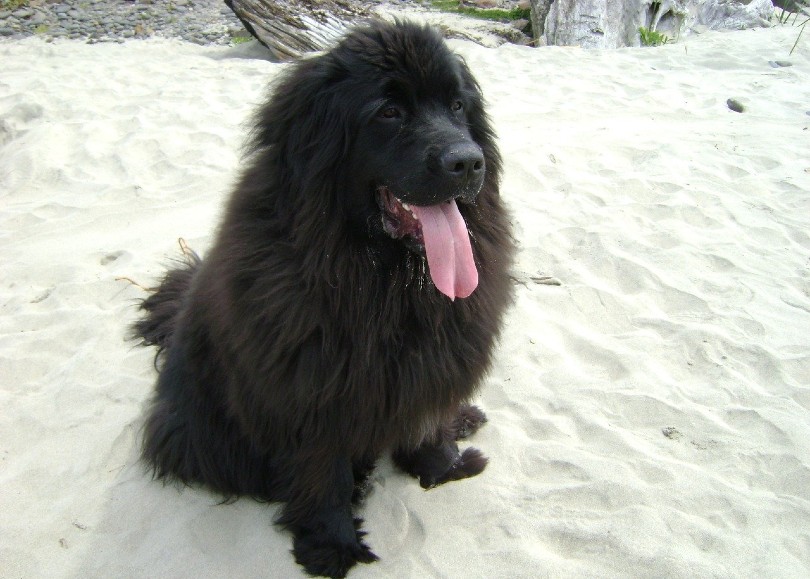What Could Happen If My Dog Licks Human Blood? Consequences & Prevention

Updated on
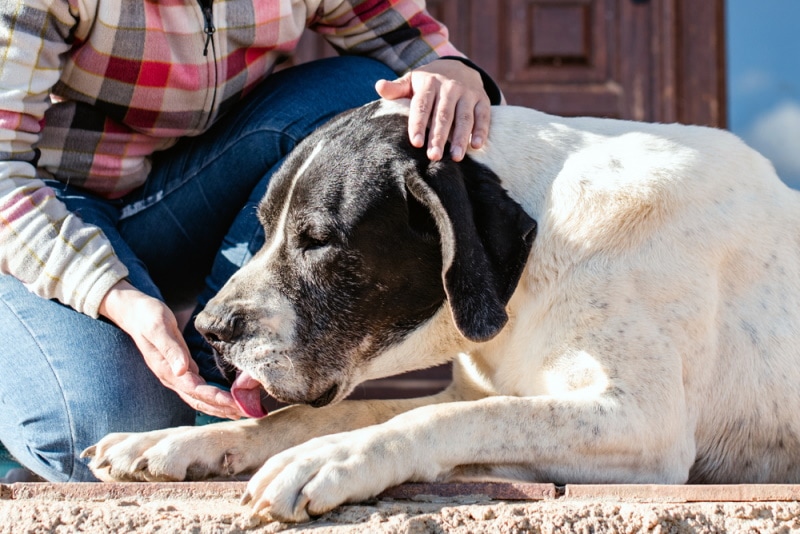
Click to Skip Ahead
If you’ve ever had an injury and found yourself bleeding, the chances are your dog has come over to investigate. Of course, not all dogs will, but some will attempt to (or manage to) lick the wound. It might seem gross, but there’s an interesting reason they do this, which will warm your heart.
But will anything bad happen to your dog if they lick your blood, or can something happen to you? The short answer is: they are trying to look after you. This article will explain everything that could happen to your dog if they lick human blood.
Consequences If Your Dog Licks Human Blood
1. They Could Get Sick
Although there aren’t many zoonotic diseases that can be transferred between dogs and humans, there are a few. It’s been found in studies that 61.6% of all pathogens that are native to humans are zoonotic. This means that pathogens (bugs), including influenza, pneumonia, and tuberculosis (among other viruses, bacteria, and fungi), can be passed on to your dog. This is a small risk, but it’s a risk to be aware of.
The other problem is the volume. Hopefully, you’re not bleeding enough for your dog to ingest large quantities of blood. But if they do, they may experience gastrointestinal upset, vomiting, diarrhea, and stomach cramps. Blood contains specific proteins that are difficult to digest and iron, which can irritate the digestive tract.
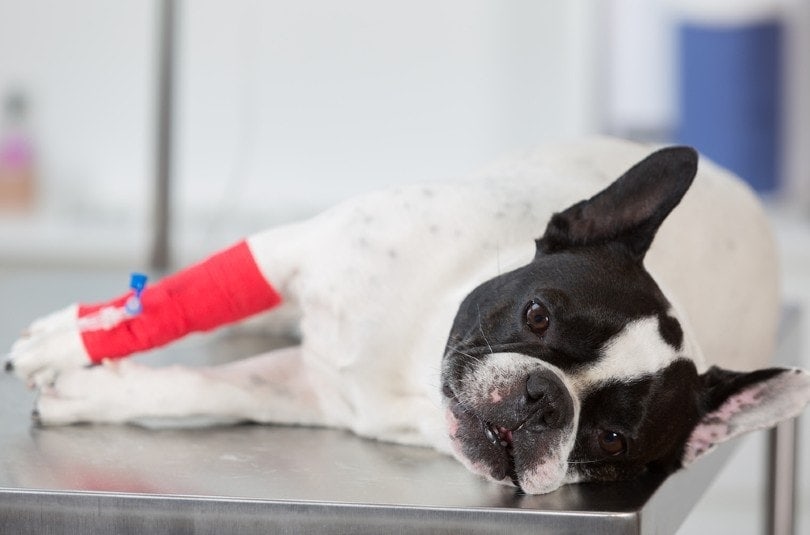
2. They Could Make You Sick
You could contract certain diseases from your dog if they were to lick your wound. Again, some are more likely than others, but they are all possible. The main one to be aware of is rabies. If your dog carries the rabies virus, its saliva will easily infect you through an open wound.
Rabies is a deadly disease that is passed on via saliva or exposure to open wounds, such as your dog licking a cut. Once the symptoms of rabies show, it is not treatable and is always fatal.
There are also other illnesses that your dog can potentially pass on to you that are rather unpleasant.
- Campylobacter: Bacteria that can cause severe vomiting and diarrhea as well as secondary infections
- Giardia: A parasite that usually infects water supplies but has a small chance of being transmitted via saliva
- Salmonella: Another bacteria that causes gastrointestinal distress, which is usually found in contaminated meat and plants

3. They Can Cause Infections
The main reason you shouldn’t let your dog lick your blood or wounds is because of the bacteria they hold in their mouth. Dogs’ mouths contain several bacteria strains, such as Pasteurella, that can cause major infections if spread to other areas.
Pasteurella can cause such severe infections that lead to amputations, as they grow best in conditions such as those present in a deep wound. There have been cases of multiple organ infections and even meningitis from owners allowing their diligent dogs to lick their wounds. It’s best not to let this happen because, as well-meaning as they are, your dog’s mouth is just too full of bacteria to risk it.
Why Does My Dog Lick Human Blood?
There is a very simple and rather sweet answer for this: your dog is trying to look after you. A dog will try to heal themselves if they are cut and bleeding by licking the wound to clean it. This innate behavior is present not just in dogs but in many animals, including rats and cats.
This is because some components of canine saliva can heal wounds. However, this is not a reason to let your dog lick your wounds, as a dog’s mouth contains several bacteria that can cause serious infections. Dogs see you as a member of their family and want to help you heal as quickly as possible.
Dogs are intelligent and will know you’re hurting, particularly if they see blood. They want to help you feel better and show you they care by licking your wounds. As much as it is lovely, it’s a good idea not to let your dog lick your wounds.
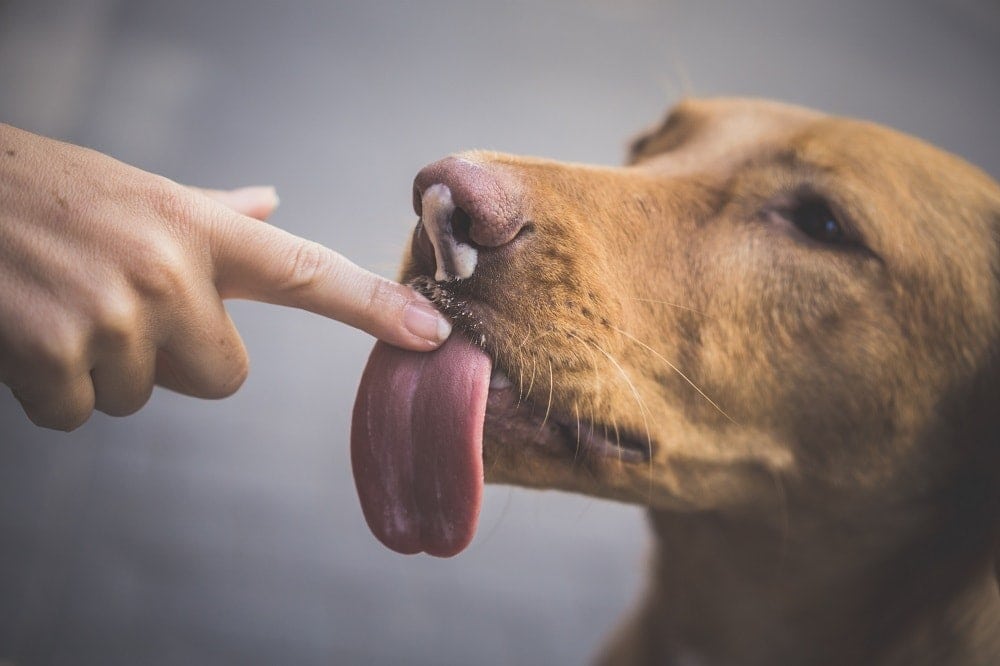
How To Prevent Your Dog From Licking Blood or Wounds
As simple as it may seem, the easiest way to stop your dog from licking your blood when it comes out of a wound is to take care of the wound itself. If you keep it out of your dog’s reach, clean it up properly using disinfectant and cover it with a sterile band-aid or bandage, your dog won’t be able to lick the wound.
If your wound is correctly dressed, it’s doubtful that your dog will try to lick it. However, if they’re intent on doing so, positive reinforcement when they leave it alone is recommended, such as using treats when they’re distracted.
Conclusion
As much as we love our dogs, we shouldn’t let them always do what they want. This includes licking human blood, as it does no good and can cause significant harm in some instances. It can cause harm to the dog since humans carry bacteria that can cause infections in dogs, and it can make them unwell if ingested in large volumes.
The easiest way to stop your dog from licking your blood and wounds is to dress the wound quickly or, if the injury is severe enough, to allow a medical professional to do so. Despite all the risks, it clearly indicates that your dog loves you and wants you to get better if they’re trying to lick your wounds.
See also: Why Do Dogs Lick Blood? Strange Behavior Explained
Featured Image Credit: Alicia Fdez, Shutterstock



